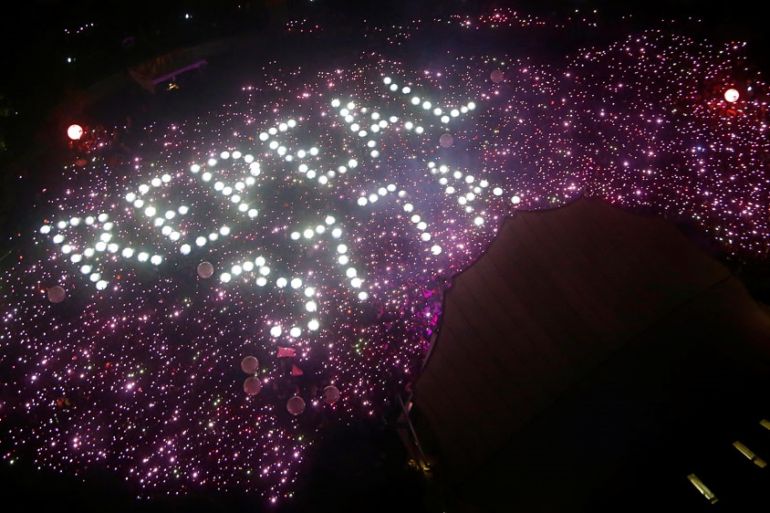Singapore court to hear cases seeking to decriminalise gay sex
City-state has retained an old British law that criminalises gay sex, but several legal challenges hope to change that.

As a Singapore court prepares to hear a series of legal challenges to a law that bans gay sex, LGBT+ activists on Tuesday called for the “right” verdict to be delivered so similar reforms can be triggered across other parts of Asia.
Like many other former British colonies, Singapore has retained an old law that criminalises gay sex, which was scrapped by India in a landmark court ruling last year to give a boost to LGBT+ rights.
Keep reading
list of 4 items‘No good evidence’ for gender care for youth over long-term, review finds
Vatican denounces gender-affirming surgery, gender theory and surrogacy
Fears of discrimination in Thailand despite looming same sex marriage bill
Empowered by the Indian ruling, three Singaporean activists launched separate bids in a renewed push to decriminalise gay sex in the city-state, where a high court will begin hearing their cases on Wednesday.
“I think public opinion is pretty clear across religious and age segments that homosexuality should not be a criminal offence,” Johnson Ong Ming, who was among the trio, told Thomson Reuters Foundation.
Ming, a DJ also known as DJ Big Kid, was the first to launch the case in September last year. The former head of an LGBT+ rights charity and a retired doctor also filed similar lawsuits later.
“I have full confidence in our judicial system and I am hopeful that the court will come to the right decision … and overturn Section 377A,” Ming said by email.
The court has set aside six days in November for the legal challenges to be heard but it is unclear when the proceedings will wrap up.
‘Not that liberal’
Under Section 377A of Singapore’s Penal Code, a man found to have committed an act of “gross indecency” with another man could be jailed for up to two years, although prosecutions are rare. The law does not apply to homosexual acts between women.
Singapore has emerged as a modern nation since independence nearly 60 years ago but socially it remains conservative, partly due to sensitivities stemming from multi-religious groups among its 5.6 million population.
Previous legal challenges to overturn the ban have failed, although recent opinion polls indicated there has been growing support for gay rights.
Opposition to gay marriage had fallen to 60 percent, down from 74 percent in 2013, according to a poll of more than 4,000 people published in May by the Institute of Policy Studies, a Singapore think-tank.
Prime Minister Lee Hsien Loong, however, has previously said that Singapore’s society “is not that liberal on these matters”.
The Singapore court cases are being closely watched by LGBT+ groups in some other parts of Asia that have maintained the colonial-era law, including in Myanmar and Malaysia.
“If the decision in Singapore goes our way, then it will boost our morale here in Malaysia,” said Numan Afifi, president of the LGBT+ advocacy Pelangi Campaign in Malaysia.
Aung Myo Min, executive director of the Yangon-based Equality Myanmar LGBT+ campaign group, said both Singapore and Myanmar “should follow the example of India” and repeal the archaic law.
Gay sex is a crime in both countries with those convicted facing sentences of up to 10 years in jail in Myanmar and 20 years in Malaysia.